Stacking The Deck with Christian Dryden of The Ritualists
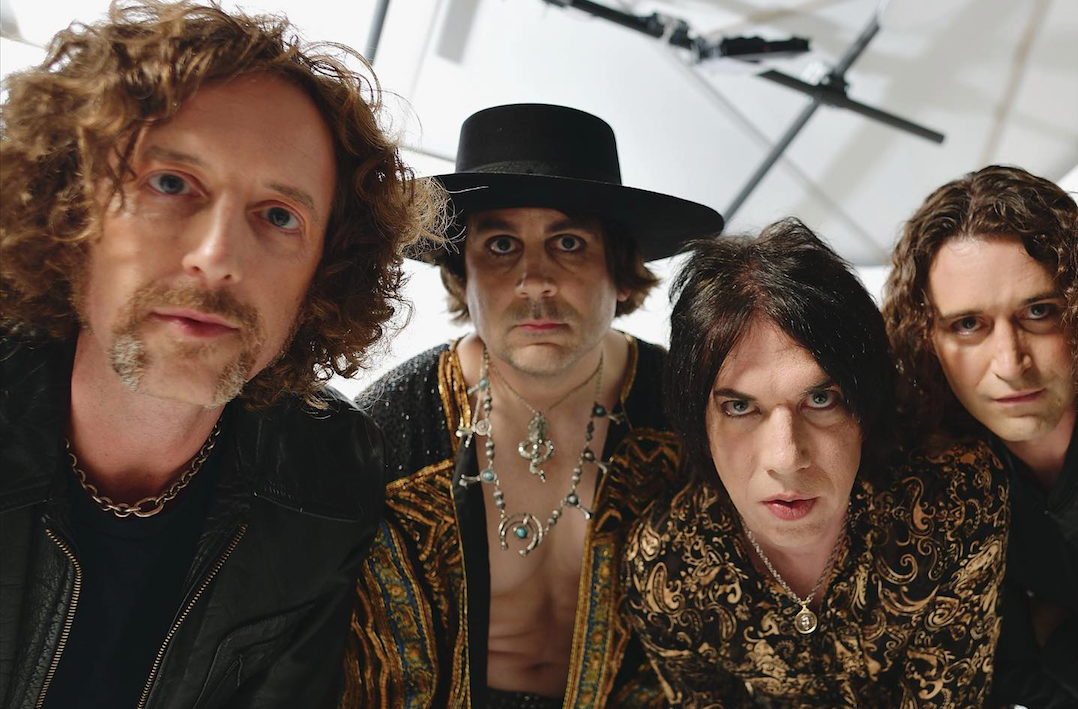
Stacking The Deck is a feature exclusive to Adam’s World where I bring packs of 1991 Pro Set Superstars MusiCards to artists, and we discuss who they find in each pack.
The Ritualists want to bring something old school back to the creation of rock music – the human element.
“That’s what makes it exciting, and cool, and dangerous,” explains the band’s frontman, Christian Dryden (third in photo), “Where’s the danger if everything’s being run through a system that puts everybody in key? One guy’s recording in London, and the other guy’s in L.A., and they never even met one another.”
He continued, noting that while it’s easy, and inexpensive to do everything in front of a computer, “There is something special that happens if you’re a band, and you love each other, and you respect each other, and you’re playing together in a nice room. … That isn’t being done enough, so we’re trying to bring it back.”
Next week the NYC-based foursome will be recording together at the Clive Davis Institute for Recorded Music in Brooklyn, with Grammy winning producer Mario McNulty (David Bowie, Prince, NIN). Some of those songs may end up on The Ritualists’ upcoming album, Too Pure to Cure, the first single off of which is, “The Plastic Crusade.”
“The Plastic Crusade” will be followed by two more singles, then the album, with the latter featuring artwork by Sebastian Correa, who painted 9x9 portraits of each of the band members.
Dryden anticipates Too Pure to Cure being out in the spring, with a tour around the same time.
Having recently seen The Ritualists at Bowery Electric, I caught up with Dryden to open up some packs of MusiCards, and the artists we found sparked conversations about how Echo & the Bunnymen have influenced him, the way in which he’d like to follow in the footsteps of George Michael, and his love of famed Italian actress Ornella Muti.
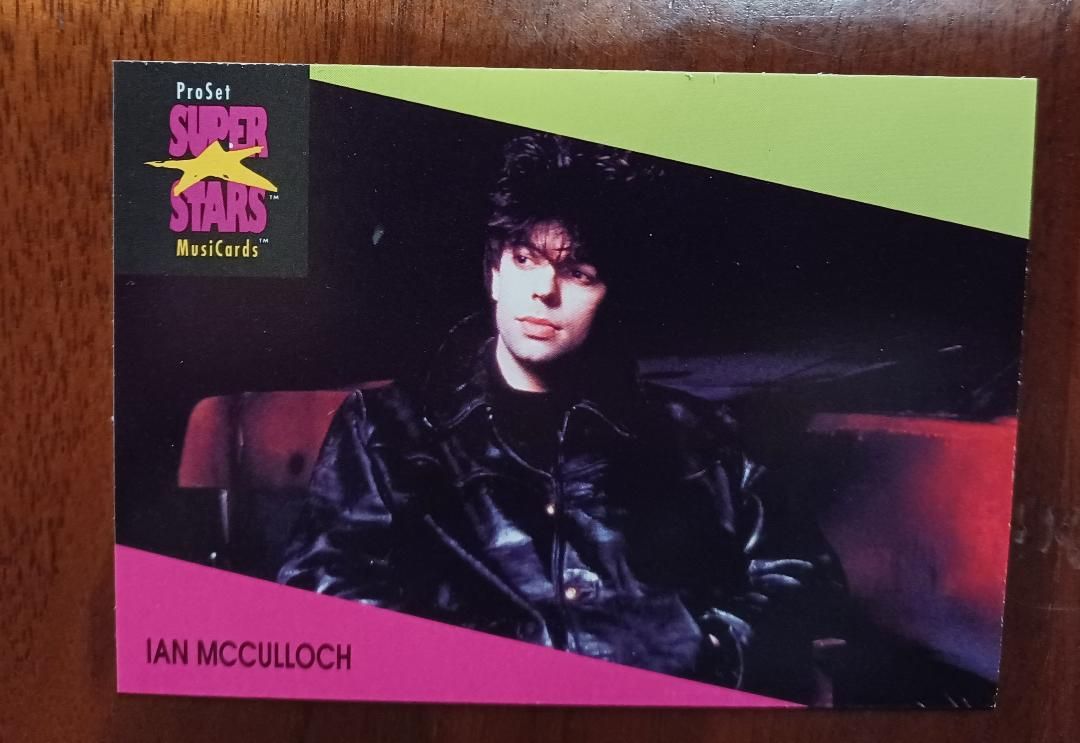
When you pulled this card it was an immediate yes. Why you were excited to see Ian McCulloch?
He is a lead singer of Echo & the Bunnymen, which is one of my all-time favorite bands, and his voice really speaks to me.
I think he’s a fantastic singer, and a very underrated lyricist, as well.
A lot of what The Ritualists do is certainly informed by Echo & the Bunnymen, right down to the way I sing a lot of the time.
Ian, they say that his voice is like shredded silk, and I definitely agree with that that. It’s beautiful, and a little haunting at the same time.
Do you feel that’s also The Ritualists?
I’d like to have a journalist refer to my voice in that manner. I try to capture those moments.
I think it’s really about emotive singing, which you get with – in the most modern example I could think of, and this is not that modern – Radiohead, The Verve, Richard Ashcroft. Those are those types of singers where the music is still pop, but there’s a dark emotionality to it.
Is it hard following in a lineage where there are fewer and fewer modern versions of it, and you’re sort of swimming upstream a little bit?
Yes, it’s definitely hard, but it also it also makes you stand out when you’re on a bill with five other indy-ish “rock” bands, and I put rock in quotes, and you’ve got a few talk singers talking their way through sets, and other singers that are informed by other elements, and other rock vocalists, that you can sort of hear, and you do this. I think it makes you stand out, but it’s also not the norm. I don’t know that it’s in vogue right now, but I love it, and I’ve always been singing this way.
When I first heard Echo & the Bunnymen, I put the album on, and my buddy who was a guitarist was like, “Oh man, that sounds like you!” and I was like, “No, you mean I sound like HIM. This came out in 1983!”
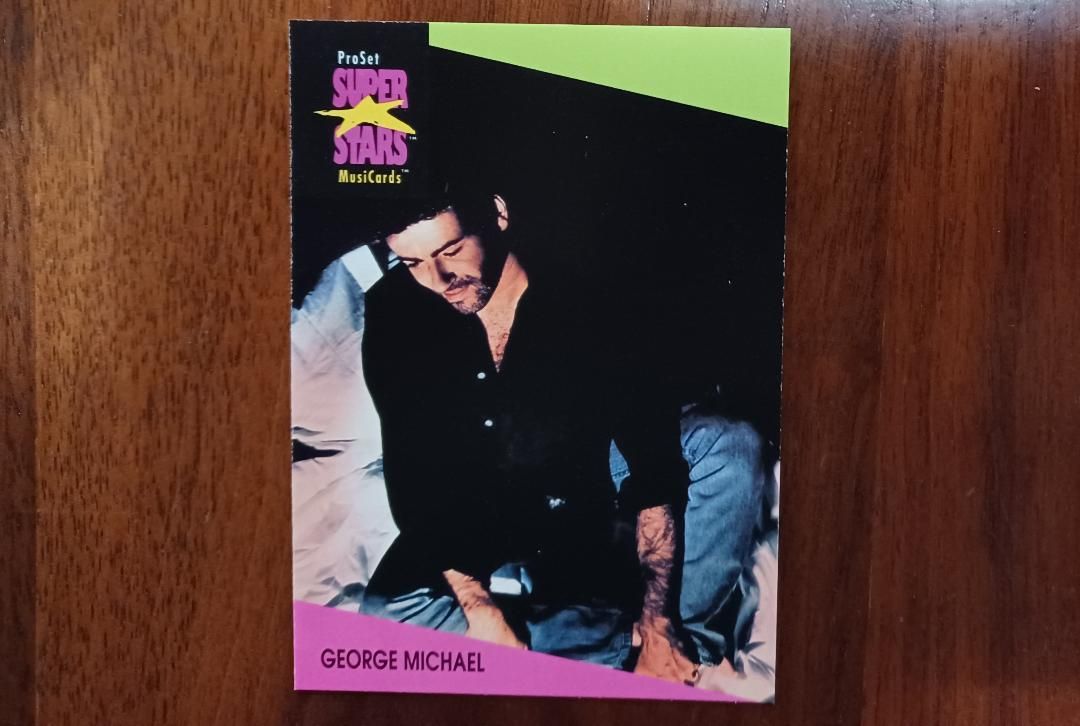
Speaking of legendary voices, let’s go to George Michael, who is, in my opinion, one of the great voices of all-time.
Yes, I’ve always loved George Michael. I’ve taken a lot of flack from some in the rock community for referencing George Michael songs, or trying to get them to cover a George Michael song, because, again, we have similar vocal ranges, so it’s fun for me to do his stuff.
I really think when Queen tragically lost Freddie Mercury he was the logical replacement. I think that was a huge missed opportunity there.
That would have been amazing.
Yeah, he has the chops, he has the swagger, and he had already made his own mark in music, so it wouldn’t have been like they were like plucking someone from a television program, or something like that.
Our current manager, Michael Pagnotta, also managed George Michael later in his career, so I when I’m sending Michael new tracks I’m always a little bit nervous, because I’m thinking in my head – this guy used to judge George Michael’s vocals.
George Michael also went way into left field later in his career, going from Faith, and Listen Without Prejudice, to doing disco, and dance pop.
I think George Michael made so much money off those early hit songs he could basically do whatever the heck he wanted to, and he was an artist. I just learned recently he played all the bass lines on a lot of those big hit songs like “Freedom! ’90,” so he was a musician’s musician, even though he was very pop, and I think what happened was he acquired enough money to be comfortable, and he just said I want to make a disco record, I want to do a dance record, I don’t care what anybody says, at this point in my life I don’t need anyone’s approval.
That’s really cool when artists make a lot of money, and then they make music that they want to make. I think too many artists that are huge have this thing like, “I’ve got to stay in the Top 40,” and I think it hurts them in the long run.
In the back of your mind do you have a crazy thing you want to do musically that no one will see coming?
Actually, I’ve spoken with my band about this. A lot of the newer stuff – outside of the new single “The Plastic Crusade,” which is very rock – is very dance-y, is very disco informed, and there’s a lot of Duran Duran influence, and our manager really digs it. He’s like, “You should embrace this. Don’t shy away from it. It’s cool when each record doesn’t sound exactly the same.”
But I’ve told the guys if we ever like exploded wouldn’t it be cool to just do like a late ‘60s British bluesy hard rock, like a Cream, album. Just record on reel-to-reel tape, no overdubs, and just rock out for 45 minutes. That would be my like, OK here’s us going in a completely different spot. That’s exactly what we would do.
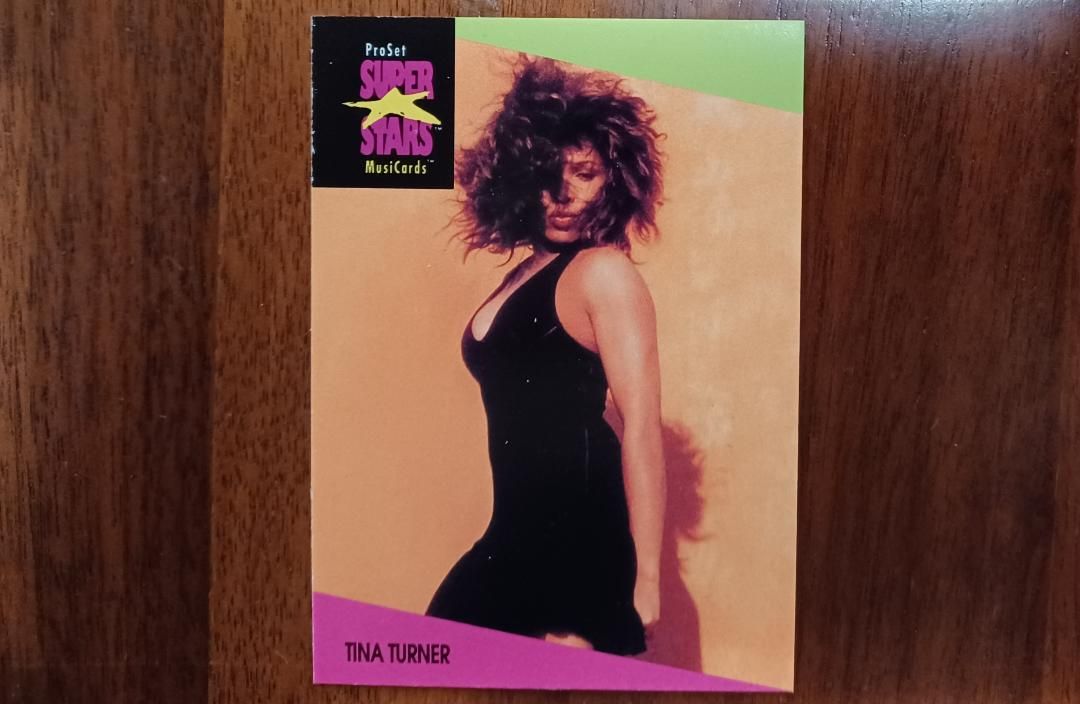
Another amazing voice – Tina Turner.
What she went through, and overcame as a human being is an inspiration, and her voice, she has one of those unmistakable, incredible voices, and she can sing rock, and she can sing soul, and she can sing blues.
I was first exposed to her through the “Acid Queen” song from The Who’s Tommy, which she just knocks out of the park.
It was also the way she moved on stage. I understand Jagger got his Jagger moves from her.
She’s certainly a voice I can’t replicate, but it’s one of those things where you’re just in awe of it, and I think that’s important. I don’t always want my musical heroes to be doing things that I can do. You also want to have those aspirational artists, like this is someone who’s climbed to a height where like I’m not sure I can ever get to, so I’m just gonna enjoy it, and observe, and listen. Tina Turner is definitely one of those artists
Do you have any other artists who are not necessarily in your musical lane that you look at and you’re a little bit in awe of in terms of how well they do their craft?
Prince, and Stevie Wonder. Their complete mastery of multiple instruments, combined with their vocal range, they’re reaching places where I’m just like WOW. They’re hitting the stratosphere.
Led Zeppelin, as well, but with Led Zeppelin it was more as a collective when the four of them were at the top of their game. You see some of their early live stuff, like the How the West Was Won DVD that came out, it’s insane that the drum, and bass are just all over the place, and the power, and Robert Plant hitting notes that no one else can hit, and then Jimmy Page’s genius.
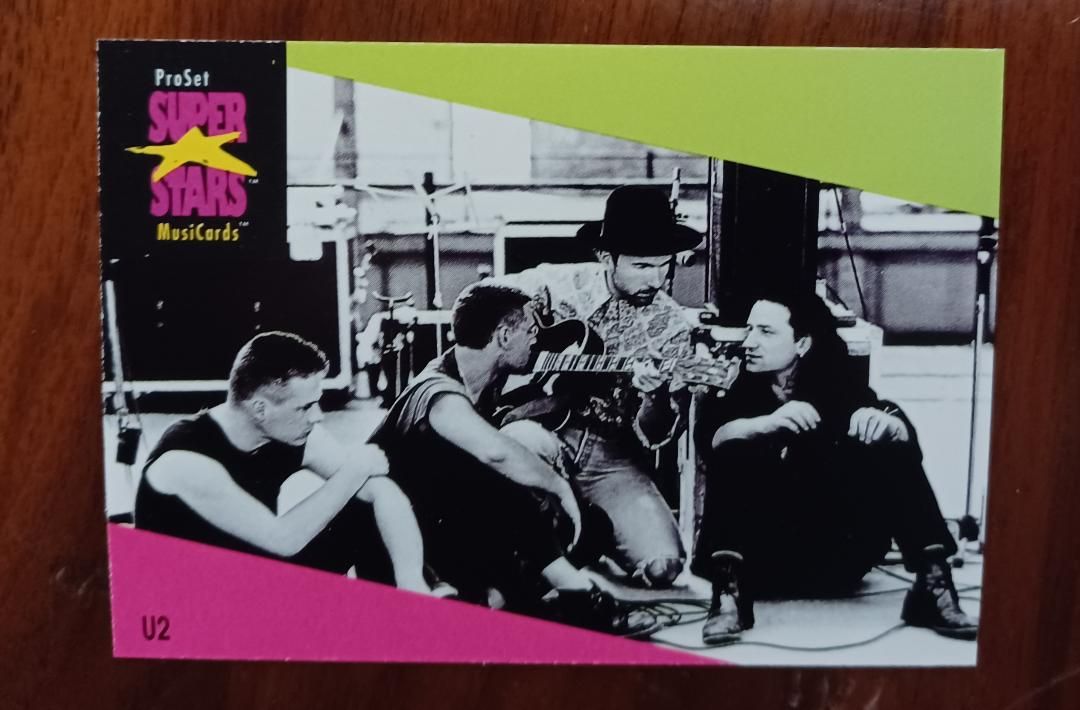
Now we have U2. I know you’ve never uploaded your album to everyone’s phone all at once, so what’s your U2 influence?
I understand the animosity, and the issues people have with Bono in particular, but I think the first decade-plus of their career is pretty incredible. Boy is my favorite U2 album.
I don’t want to be one of those guys, “I like their early stuff,” but I really do. I really love their early stuff. It’s much darker. It’s very post-punk. The Edge basically created an entirely new way of approaching guitar, which was hugely influential. At the time everybody was trying to be Eddie Van Halen, but The Edge was doing that delay repetitive rhythmic thing, and Bono’s voice is untouchable. I think he’s one of the greatest vocalists in rock and roll. I’m not always on board with his, you know, savior complex stuff, but he did write some incredible songs, so I give him a lot of leeway with that.
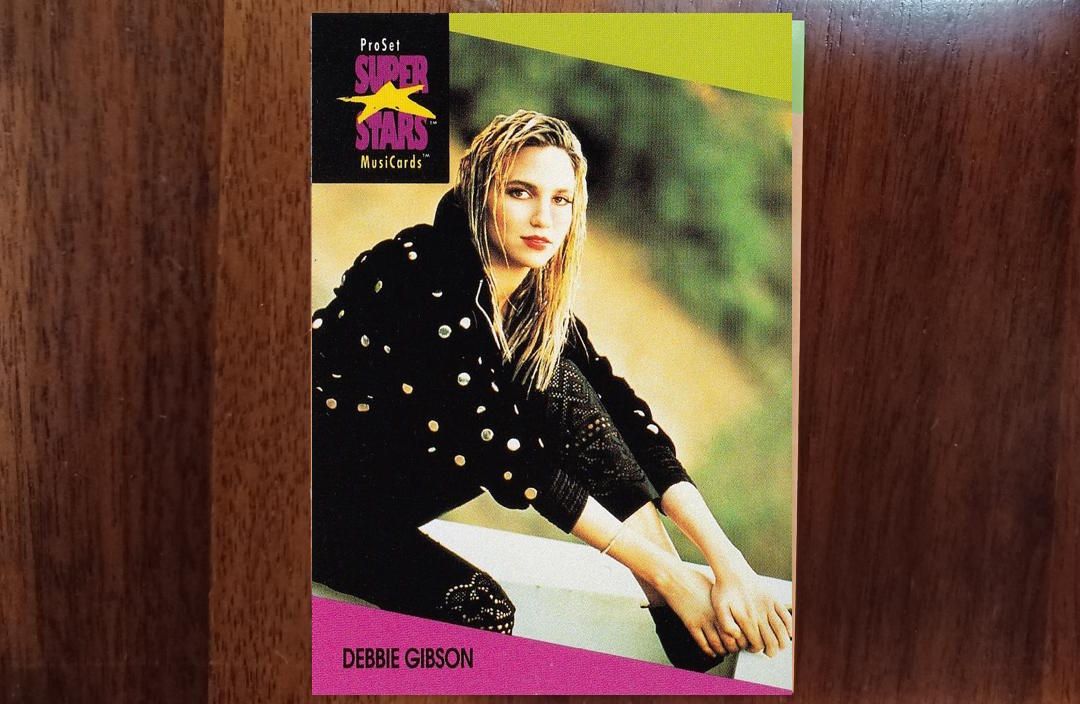
Debbie Gibson is someone a lot of guys had a crush on in the ‘80s. Do you have a celebrity crush from your youth that you would like to shout out?
Well, the first woman I remember being attracted to – and I was seeing her on video, it was before my time, but I was into Star Wars, and sci-fi movies – Flash Gordon was shown to me as a kid, and Princess Aura, played by Ornella Muti, I just fell, I was smitten, and this basically fostered a love that I still have to this day for foreign women who come to the United States. The accent was very attractive to me.
She also seemed kind of scary and dangerous, because she wasn’t entirely a good character in the movie, she was a little bit evil, and that was kind of a turn on, as well, to my prepubescent brain. I’m not sure why.
M.I.A. said it – “Bad girls do it well.”
She’s still beautiful to this day.
For more of The Ritualists, check out theritualists.com.

Comments